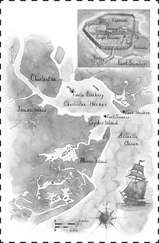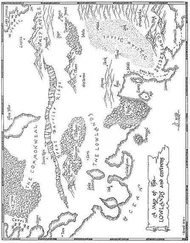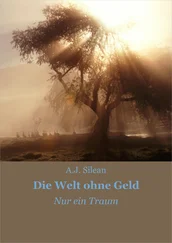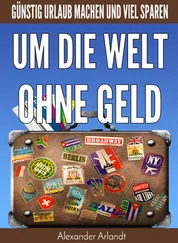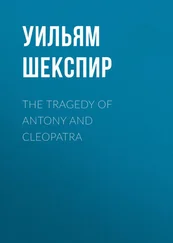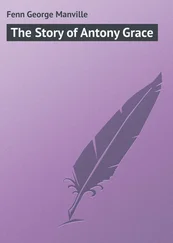A little-recognized incentive to the creation of this maritime empire of faith lay in the fact that Muslims had to pray three times a day in the direction of Mecca, a prayer which for its proper execution depended, of course, on the sure knowledge of the whereabouts of that sacred city. When the first Arab traders tentatively colonized parts of the coast of Zanj, they built unsophisticated wooden mosques which frequently can be shown to have been misaligned: only later, when the ports and their trade were more secure, were stone mosques built in the Arab style with the required alignment to Mecca, achieved by use of the magnetic compass and the astrolabe and an understanding of the stars. Thus the fundamental ritual of Islam was a significant encouragement to the science of navigation, and the concomitant spread of faith and commerce. This was reinforced by the necessity for the faithful to make the Haj pilgrimage to Mecca at least once in their lives, with the result that the Muslims were highly motivated and experienced travellers over long distances. Had Christianity evolved similar rituals in connection with Rome or Jerusalem, the necessary navigational skills and equipment might have been developed earlier. Ironically, Jerusalem had been the geospiritual target of early Islamic prayer until Mohammed made the former pagan site of Mecca (the Ka’ba having been worshipped there previously for many centuries) into the proper focus of Islamic prayers by decree in AD 624. As it was, the compass had been originally invented by the Chinese but discovered again by the Arabs: the astrolabe was their original invention, along with early clocks, theodolites, and instruments for measuring the apparent movement of a star by an observer who had himself changed position. Islam was structured in such a way that it not only encouraged science, but positively required it. By contrast it took the rise of sea-borne mercantilism in Europe in the seventeenth century to provoke intense interest in astronomy and navigation: the observatories of Paris and London were set up with the principal aim of solving the problem of longitude.
Islam having established a bridgehead in China, it was inevitable that the Sufis should also turn up there. Indeed the Emperor invited a group of Sufi astronomers to Peking in the 1270s to assist in the setting up of an observatory. The presence of Sufis in south China seems to have influenced Japanese Buddhism, leading to Zen Buddhism, which, like Sufism, focuses on ‘masters’ and illustrative tales from their lives. The Sufis, and the Muslim population in general, would have been widely exposed to the Chinese habit of drinking tea, which had been established for at least a thousand years – it is recorded that there were over a hundred water-powered tea mills in the first century AD. Surprisingly, there is no mention of tea consumption in Middle Eastern sources until a reference in Giovanni Ramusio’s Delle navigationi et viaggi (1550–9), citing Hajji Muhammed, a traveller in the Caspian region, who thought that if the Franks and Persians had known about tea they would have given up rhubarb. Marco Polo, usually an inveterate chronicler, made no mention of tea at all. Nonetheless, it is tempting to suppose that the Sufis, who were inclined to embrace enthusiastically anything that could bring them closer to God, would have experimented with tea drinking in China, and may have adopted it as part of their rituals.
What is certain is that the celebrated Treasure Fleets sent out by the Ming dynasty Yongle Emperor into the Indian Ocean contained, amongst silks and porcelain and other trading goods, tea. The fleets were the most impressive ever seen, with hundreds of vessels of which the largest were nine-masted, 400-feet long and 160-feet wide juggernauts. Their ostensible mission was to extract tribute and assert the hegemony of the Middle Kingdom over the known world, principally the lands bordering the Indian Ocean. Envoys were brought back to Peking to pay their obeisance to the Emperor, accompanied by exotic animals such as the giraffe brought from Malindi and presented to the Emperor in 1414 and which was believed by the Chinese to be the legendary qilin , a sacred animal that would appear only in times of great prosperity. As well as putting on an awesome display of the might of the Dragon Throne and trading in Chinese goods, the Treasure Fleets (there were seven voyages between 1405 and 1433) were missions of discovery that prompted a sudden increase in the Chinese knowledge of plants and medicines, and of the lands from where they came. It seems that from the Chinese understanding of tea, which had initially been valued for its medicinal effects, the notion of infusion – the steeping of plant matter in boiling water to extract the desired essence – had developed. This deceptively simple discovery was spread through the popularization of tea.
The Treasure Fleets were led by the Admiral Zheng He, the ‘Three Jewelled Eunuch’. His father had been a Muslim soldier from Yunnan province who was caught up in the fighting at the break-up of the Mongol Empire. In 1381 he was killed, and his son was taken into captivity and castrated in the Chinese manner, an excruciating variant that also involved the removal of the penis. Eunuchs were highly prized at court, being considered not only immune to the charms of the imperial harem but also particularly loyal to the ruling Emperor. Zheng He rose rapidly to prominence in the service of the prince of Yan, Zhu Di, who was campaigning against the Mongols in the northern steppes. An able commander and an imposing figure, Zheng He stood by Zhu Di when he usurped the Dragon Throne from his nephew, and was the natural choice for leader of the Treasure Fleets, upon which most of the highest positions were held by eunuchs. Both his father and grandfather were ‘Hajji’, meaning that they had made the pilgrimage to Mecca, and Zheng He’s religion was an asset in the Indian Ocean.
The fifth voyage under Zheng He called at Aden in 1417, then part of the Rasulid kingdom of Yemen. It was an extremely wealthy port, and the sultan grandly ordered that only those with ‘precious things’ could trade with the Chinese. Whether tea was sold to the Arabs is not recorded, but it can be reasonably assumed that Zheng He and his officers would have drunk tea either with or in the presence of visiting merchants and dignitaries. The awesome majesty of the Treasure Fleet would have given the visitors particular reason to note the customs and behaviour of their distinguished company, and the concept of infusion to create a beverage would have been dignified by association. The stimulatory effects caused by the caffeine in tea may likewise have been noted and discussed. After the sultan had presented lions, zebras, ostriches, and another qilin for the Emperor’s collection, the voyage then went on to Malindi and the coast of Zanj. It is almost certain that the Rasulid monarch in Ta’izz, having great interest in exotic plants and Chinese porcelain, would have paid attention to any reports of the Chinese drinking tea.
The seventh and last voyage in 1432 had a more extensive impact in the Red Sea: Zheng He, ill and exhausted, eschewed the opportunity to make the Haj and instead sent the fleet of more than 100 ships and 27,000 men to Hormuz and beyond with his deputy, the eunuch Hong Bao. Unable to land at Aden as a result of local fighting, he secured the permission of the Emir of Mecca to sail up the Red Sea to the port of Jiddah, where the Chinese were received with due honour. As well as their usual interest in trading, a translation of an Arab text Hut yaw fang (‘The pharmaceutical prescriptions of the Muslims’) had appeared in China to intense interest there, and particular attention was paid to the acquisition of Arab drugs and medicines. The use of aloes (a purgative and tonic), myrrh (for the circulation), benzoin (a gum that aids respiration), storax (an anti-inflammatory), and momocordia seeds (for ulcers and wounds) was recorded. It is significant that at this stage there is no mention of coffee: both the Chinese and Arabs would have had good cause to have analysed its properties if it had been a known substance at the time. It seems that knowledge of coffee was still confined to the Ethiopian Highlands. Qat is likewise absent from the pharmacopoeia.
Читать дальше


